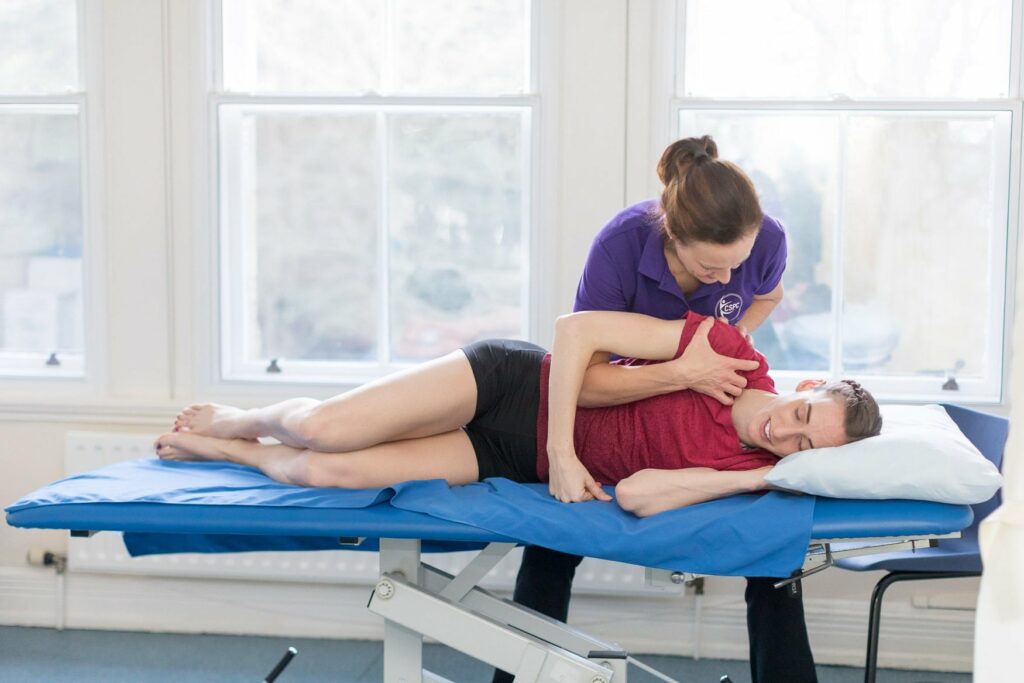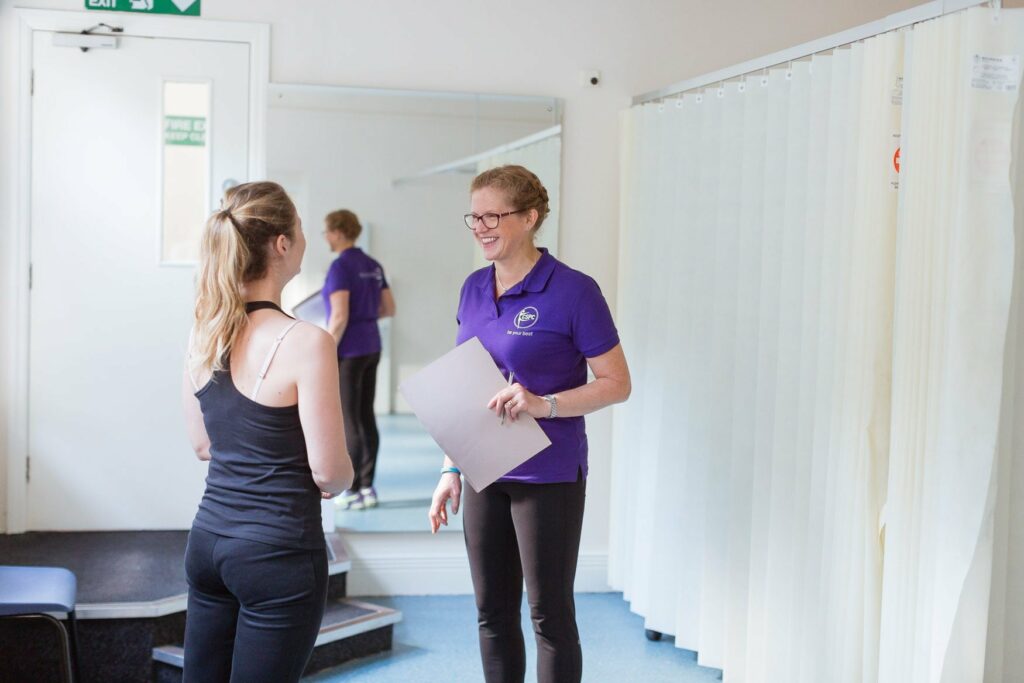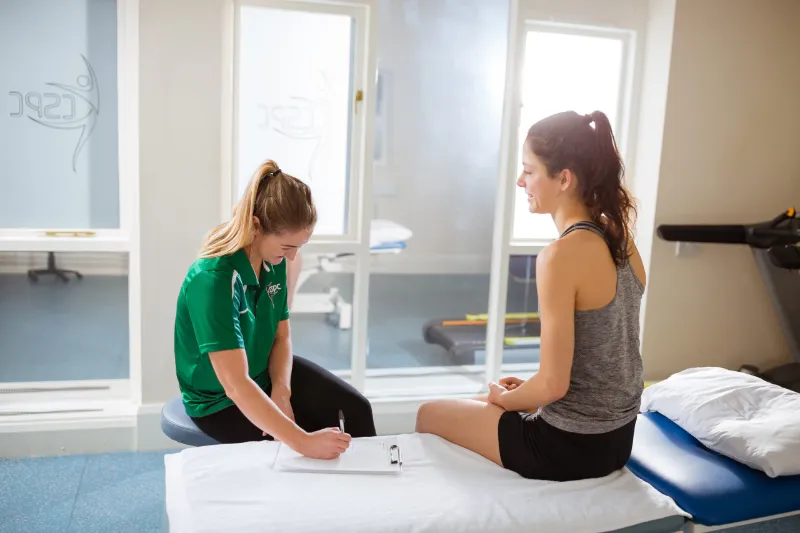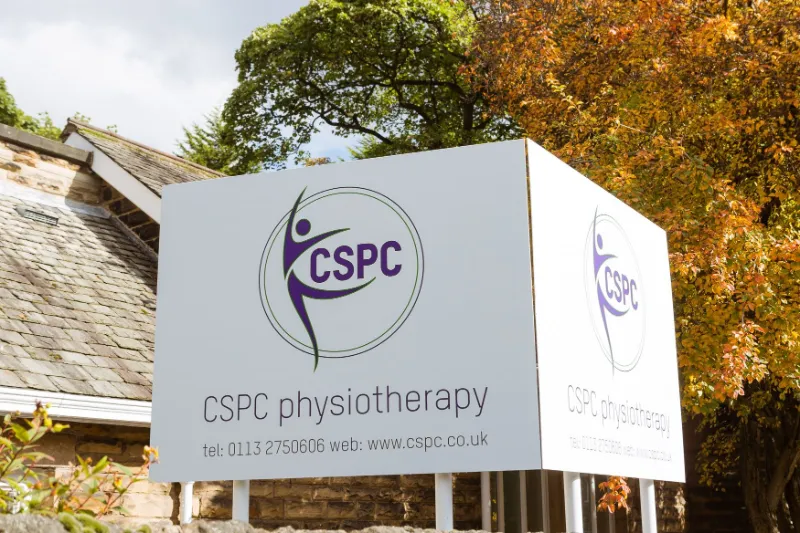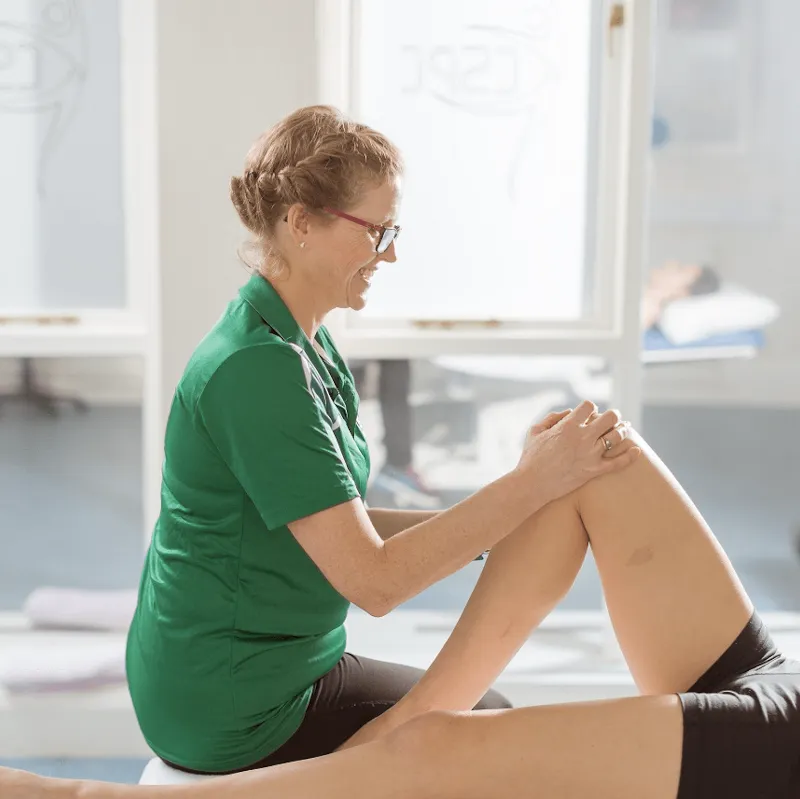Shockwave therapy can be used in conjunction with hands on treatment and exercises set by your CSPC physiotherapist to speed up your recovery, bringing faster relief to chronic localised injuries.
What is shockwave therapy?
Extracorporeal Shockwave Therapy (ESWT or SWT) is the name given to a treatment that involves shockwaves being passed through the skin to the injured part of the body. The shockwaves are generated inside a hand-held device, which when held against the skin, feels like something is hitting the skin and the tissues under it. The resulting waves that pass through the tissues are a bit like the ripples on a pond when you throw a stone into it, and it is this that helps to create a healing effect on the tissues. The treatment is noisy and can be painful, but can also be effective when used in the right way.
ESWT has been positively reviewed by the National Institute for Health and Clinical Excellence (NICE) for Achilles tendinopathy, plantar fasciitis and tennis elbow in the UK.
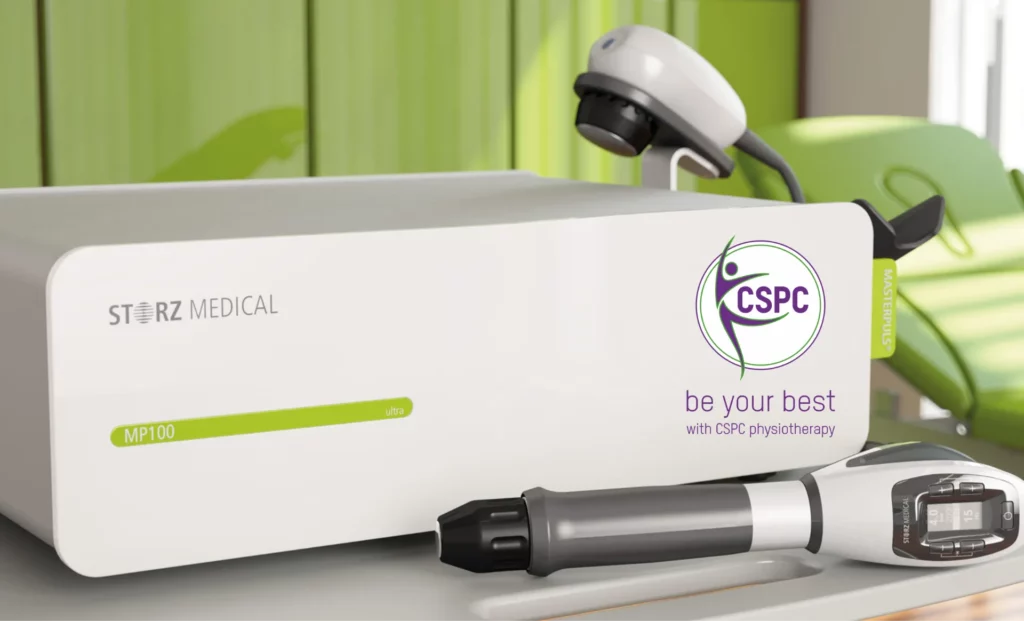
How does shockwave therapy work?
The waves created during shockwave therapy treatment:
- Increase blood flow in an area, promoting cell regeneration and healing
- Break down deep seated scar tissue and calcification within soft tissues and tendons
- Reduce chronic pain in damaged tissues, enabling more effective rehabilitation
What conditions can shockwave therapy help with?
- Plantar fasciitis
- Achilles tendon pain
- Patella tendinopathy
- Tennis elbow
- Calcific tendinopathy of the shoulder
- Lateral hip pain
Shockwave therapy can be a very successful treatment for patients who have failed to respond to appropriate physiotherapy treatment or other conservative treatments.
How does CSPC use shockwave therapy?
At CSPC, we feel that SWT is an adjunct to your physiotherapy treatment. We feel that the best results are obtained when it is part of a treatment plan that involves a thorough assessment of your injury, hands on treatment, and an exercise program to strengthen and rehabilitate the injured area.
How many sessions of shockwave therapy are needed and how long does it take?
On average, three to six sessions are required. In line with the National Institute for Health and Care Excellence (NICE), the recommended treatment is conducted over three to four sessions at weekly intervals. This allows the radial shockwaves to effectively treat the injury. It may take more sessions to resolve your injury, but this will be discussed with your practitioner.
Does shockwave therapy work well with chronic problems?
Shockwave therapy has been shown to have great results with chronic problems, when used as an adjunct to the correct treatment and rehabilitation program.
Booking shockwave therapy sessions at CSPC
Because we feel that SWT works best as part of a treatment plan, your first session will be with a practitioner who will take a thorough case history and assess whether your injury is suitable for shockwave therapy treatment. As part of this session, they will treat the area and give rehabilitation work that you will do alongside the shockwave treatment. Shockwave is likely to be carried out during this treatment if appropriate.
There are two ways in which you may be asked to continue with treatment, should SWT be suitable for your injury. If there are other issues that need addressing, you may be asked to return for further physiotherapy sessions of one hour, during which you will have treatment and shockwave. Alternatively, you may be given a rehabilitation programme, and asked to return for three sessions of shockwave only, and then have a follow up session of physiotherapy to assess progress a few weeks later.
Prices
Initial consultation and reviews
As per physiotherapy consultation prices
£180
Series of three 30-minute stand-alone shockwave sessions after the initial assessment
£65
Single session of shockwave
Please note that if the practitioner feels that physiotherapy alongside your shockwave therapy is more appropriate for your injury, you will be asked to return for a full review appointment, during which you will receive treatment and shockwave.
*New clients to the clinic requesting shockwave therapy treatment, with or without a referral from a physiotherapist or sports consultant, will still need an initial consultation with a CSPC physiotherapist, to assess your injury for suitability for this treatment, and to be able to monitor progress.
GET IN TOUCH
If you have any questions, are ready to book an appointment or are planning your trip to see us then you’ll find all the information you need below.
See why patients
love CSPC Physiotherapy
"Amazing physios! I started coming here when they were located in Leeds Met. Now moved out to a new building by the Village gym/hotel. Every physio I have seen has been nothing short of amazing.....very knowledgeable and always seem to fix the problem!"
Chris Allen
"Rose came highly recommended to me from a sports therapist who was also a high level athlete. She clearly cares about getting her patients back to full health ASAP. She kindly reviewed a list of my injuries prior to booking anything with her so she could appropriately advise on who i should see. From my brief conversation with her i could tell she cared and had extensive knowledge about biomechanics and getting to the root cause of the problem."
Drew Norcup
"I was attended to by Louisa who was great . She was very thorough and methodical in getting to the root of my problem and gave me effective treatment. At the end of my treatment I was given a plan to follow. There was no pressure to book a follow up appointment either.
I would definitely recommend to anyone contemplating going. My only regret is that I did not go earlier."
James Ahmad
"Absolutely the best practice I’ve been to. Extremely experienced and expert physiotherapists. Particularly the folks who’ve worked with British Triathlon and elite athletes. Very happy with the expertise, treatment and longer mire valuable sessions. A very refreshing and reassuring approach to care"
Andrew Bannister
"Wow I have been other physiotherapy the only did basic wok on my shoulder . But janat who did look at my shoulder . She trying to find out what is causing the shoulder pain . She did found out after several exercise . She is amazing what she dose . I am glad I have been recommend to cspc. Let’s hope none one suffer shoulder injury but if you experienced any body pain . Janat is the one . Well done guys finally I can go back to gym "
Sarbast Mohammed

